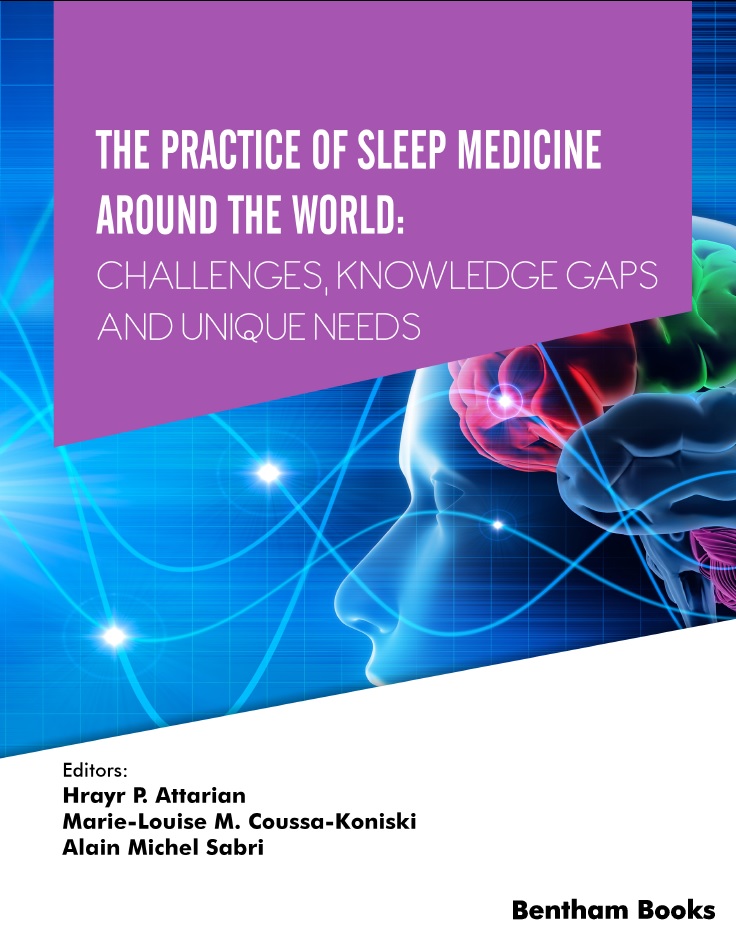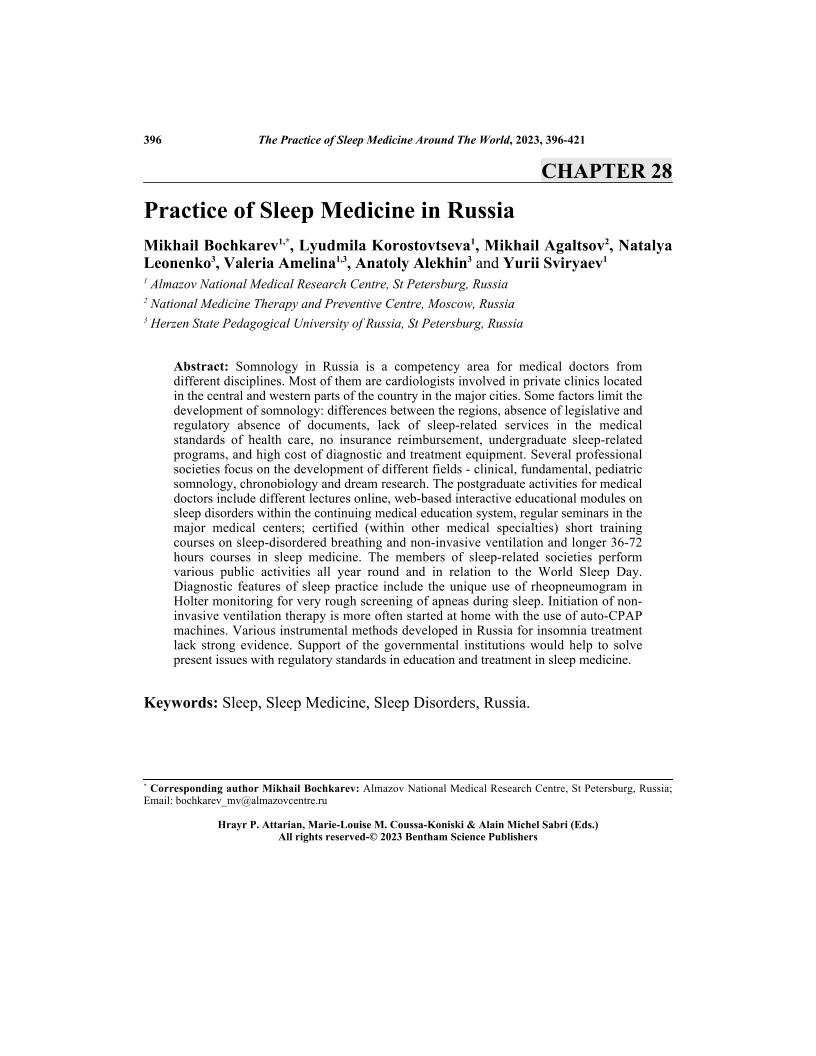Practice of Sleep Medicine in Russia

- Authors: Mikhail Bochkarev1, Lyudmila Korostovtseva2, Mikhail Agaltsov3, Natalya Leonenko4, Valeria Amelina5, Anatoly Alekhin6, Yurii Sviryaev7
-
View Affiliations Hide Affiliations1 Almazov National Medical Research Centre, St Petersburg, Russia 2 Almazov National Medical Research Centre, St Petersburg, Russia 3 National Medicine Therapy and Preventive Centre, Moscow, Russia 4 Herzen State Pedagogical University of Russia, St Petersburg, Russia 5 Almazov National Medical Research Centre, St Petersburg, Russia | Herzen State Pedagogical University of Russia, St Petersburg, Russia 6 Herzen State Pedagogical University of Russia, St Petersburg, Russia 7 Almazov National Medical Research Centre, St Petersburg, Russia
- Source: The Practice of Sleep Medicine Around The World: Challenges, Knowledge Gaps and Unique Needs , pp 396-421
- Publication Date: March 2023
- Language: English
Practice of Sleep Medicine in Russia, Page 1 of 1
< Previous page | Next page > /docserver/preview/fulltext/9789815049367/chap28-1.gif
Somnology in Russia is a competency area for medical doctors from different disciplines. Most of them are cardiologists involved in private clinics located in the central and western parts of the country in the major cities. Some factors limit the development of somnology: differences between the regions, absence of legislative and regulatory absence of documents, lack of sleep-related services in the medical standards of health care, no insurance reimbursement, undergraduate sleep-related programs, and high cost of diagnostic and treatment equipment. Several professional societies focus on the development of different fields - clinical, fundamental, pediatric somnology, chronobiology and dream research. The postgraduate activities for medical doctors include different lectures online, web-based interactive educational modules on sleep disorders within the continuing medical education system, regular seminars in the major medical centers; certified (within other medical specialties) short training courses on sleep-disordered breathing and non-invasive ventilation and longer 36-72 hours courses in sleep medicine. The members of sleep-related societies perform various public activities all year round and in relation to the World Sleep Day. Diagnostic features of sleep practice include the unique use of rheopneumogram in Holter monitoring for very rough screening of apneas during sleep. Initiation of noninvasive ventilation therapy is more often started at home with the use of auto-CPAP machines. Various instrumental methods developed in Russia for insomnia treatment lack strong evidence. Support of the governmental institutions would help to solve present issues with regulatory standards in education and treatment in sleep medicine.
-
From This Site
/content/books/9789815049367.chap28dcterms_subject,pub_keyword-contentType:Journal -contentType:Figure -contentType:Table -contentType:SupplementaryData105

